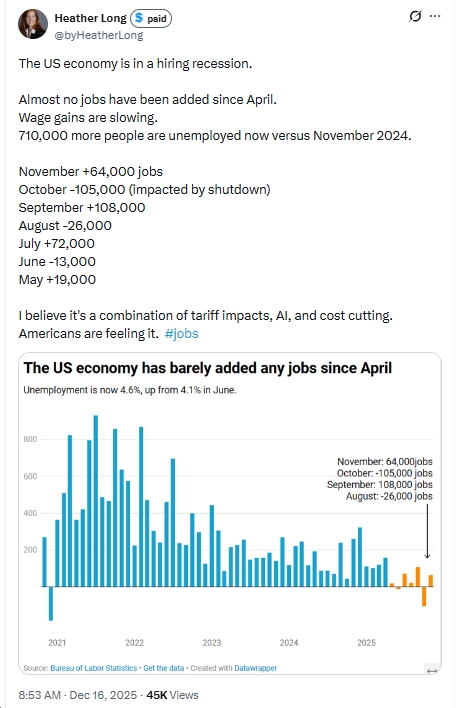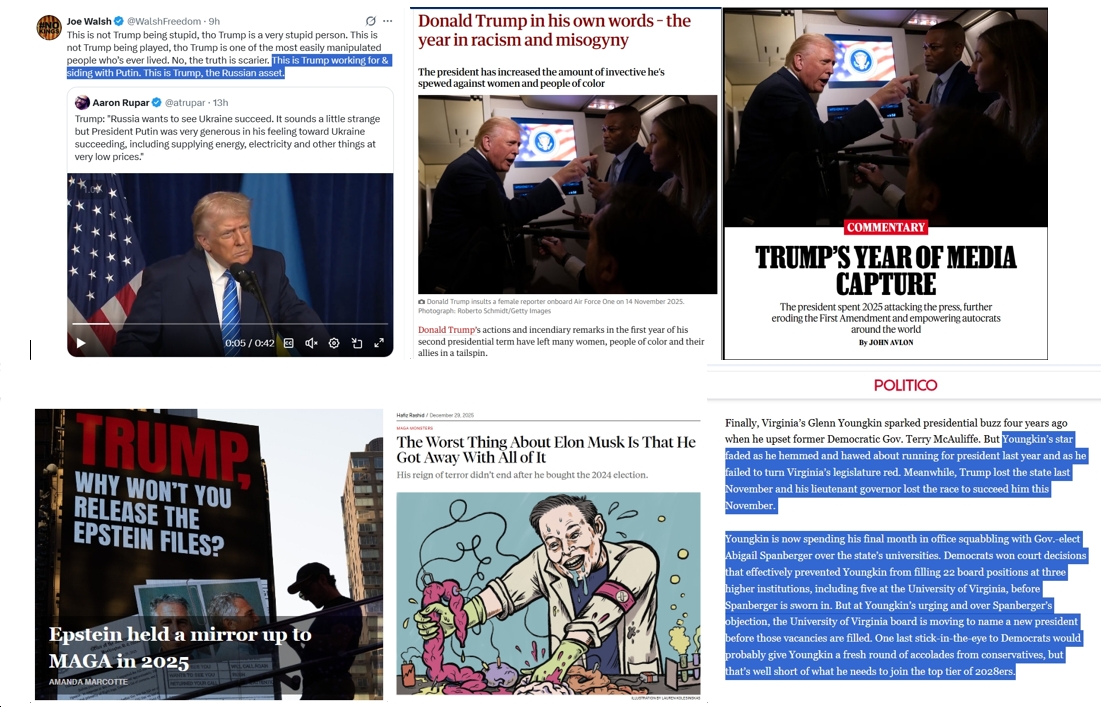From The Commonwealth Institute for Fiscal Analysis:
WATCH: Virginia Parents, Elected Officials Call for Lawmakers to Prioritize Families Over Corporations
Watch the full press conference HERE
RICHMOND, VA – Virginia parents, elected officials, and The Commonwealth Institute held a press conference on Friday calling on legislative leaders to prioritize investments in Virginia families over tax handouts to big corporations in upcoming budget proposals and negotiations.
The centerpiece of the governor’s budget proposal is $500 million in tax cuts that will go to profitable businesses and corporations. Meanwhile, despite public demand for investments in our local schools, the governor’s budget allocates just $24.1 million for ongoing initiatives to improve public K-12 schools and little in the way of direct support for families and children, particularly families with low incomes.
In advance of the House and Senate preparing their own proposed changes to Virginia’s budget, The Commonwealth Institute, legislators, and parents are calling legislators to support a three-point agenda:
- Further strengthening the state’s Earned Income Tax Credit. The EITC is a proven and targeted policy that provides economic relief to families in need. While legislators took a step last year to give families greater access to the credit they’ve earned, making the state’s credit refundable up to 20% of the federal credit would put about $300 extra in the pockets of a family of four earning $25,000 a year. If lawmakers choose to move forward with only increasing the state standard deduction, another tax policy up for debate this session, they will leave out two-thirds of Virginia households earning less than $27,000 a year, the bottom 20% of incomes in the state. Further strengthening the state’s EITC will ensure that low-income households are not excluded from the tax conversation and that economic relief is targeted to those who need it most.
- Creating Virginia’s first Commonwealth Kids Credit, a state-level Child Tax Credit. The response to the COVID-19 pandemic and economic crisis showed that direct support to families is one of the best ways to help families and boost the economy. The temporary expansion of the federal Child Tax Credit under ARPA dramatically reduced poverty and helped an estimated 1.6 million children in Virginia — 85% of all children in the state. With failed attempts to continue the brief expansion of the federal CTC Virginia can continue its momentum through a state-level credit. A refundable $500 Child Tax Credit per child under 18 in households earning less than $100,000 would benefit more than 1 million children in more than 700,000 families, and 74% of the overall benefits would be received by families with incomes under $76,000.
- Fully funding our K-12 schools. Virginia has not been funding its share of the costs to create great public schools. While some local cities and counties can afford to make up the difference, many cannot, leaving buildings to crumble and students to go without needed support. Meanwhile, schools across the commonwealth are losing teachers and other school staff due to high levels of stress and low salaries. The governor’s proposed budget amendments are not responsive to what educators, staff, and the Virginia Board of Education say is needed to improve this situation. But a budget that funds the Virginia Board of Education’s prescribed Standards of Quality and lifts the cap on state funding for support staff would provide the state share of funding for 1,490 more assistant principals; 1,200 more physical and behavioral health providers; 1,100 more school counselors; 700 more instructors for English learners; and 6,500 additional support staff — and would have a clear impact on student success.
“There are some who are proposing massive tax cuts for big corporations and the top earners in the state. Today, we are calling for legislative leaders to focus on an agenda that puts Virginia families first, ahead of big corporations,” said Ashley Kenneth, President and CEO of The Commonwealth Institute. “Targeted tax policies [such as strengthening the Earned Income Tax Credit and establishing a state Child Tax Credit in Virginia] along with strengthening our public schools present a better way forward, and a way for lawmakers to prioritize and invest in families through the state budget.
“If we’re going to move forward with tax cuts, what we’re not going to do is just give relief to corporations who are making record-breaking profit through a pandemic and engaging in price gouging that is causing inflation in our great commonwealth,” said Del. Cia Price who represents the 95th district covering a part of the City of Newport News. “The first step of a tax relief plan should be for the folks that pay the highest percentage of their income in taxes. The Earned Income Tax Credit is that step. When folks say that they want to help all Virginians in times of inflation and struggle that they may be navigating — all Virginians means low-income families as well.”
“Too many Virginian parents and children deal every single day with financial uncertainty and the emotional trauma of not being able to make ends meet,” said Del. Kathy Tran who represents the 42nd district covering a part of Fairfax County. ”But it doesn’t have to be this way. We have a $4.5 billion surplus, and we can use that to provide targeted tax relief to our working families. The Commonwealth Kids Credit would provide $500 for an individual or married person filing a joint return whose family Virginia adjusted gross income does not exceed $100,000. This would help a million children in Virginia — a million kids.”
“Gaining this Virginia tax credit will provide help and support for a lot of things,” said Latasha Deleon a parent from Richmond. “Sometimes, I can’t pay for after-school programs, they require you to have certain funds, but the money that we make don’t extend to that extent and have to cut back on the funding. It makes it kind of hard as a single parent. But this will be helpful for myself and other parents.”
“With the [federal] tax credit, I was able to cover the expenses of the move [into my own home with my son]. What a feeling of prosperity it gives me,” said Evelina Buendia, a parent from Newport News. “I could go on and on about the opportunity that this credit has given me personally, but let me tell you about the grand opportunity that you all have, to change the lives of so many more families in this beautiful state of Virginia. Lawmakers, you all have the opportunity to help a single mother flip her overtime into quality time. Lawmakers, you also have the opportunity to help the families affected by the housing crisis of rising prices. Lawmakers, you all even have the opportunity to stretch the bank accounts of parents who are trying to invest for a brighter future so that their little one can one day reach for the sky and not worry about student debt like you and I. An additional 500 would help so many families in Virginia today as we speak. So please don’t put your focus on those that already get tons and tons of tax breaks.”
“I’m here today to support tax proposals that prioritize parents and provide economic relief that our families need,” said Sheila Dudley, a parent from Richmond. “Establishing a Virginia child tax credit and strengthening the state earned income tax credit would mean more money for me and fellow parents to help us make ends meet. The additional money would mean so much to me, especially with inflation, making it harder and harder to afford everyday items like groceries, gas, and more. And we hope the final budget includes funding for these important proposals.”
####
About The Commonwealth Institute
The Commonwealth Institute for Fiscal Analysis advances racial and economic justice in Virginia by advocating for public policies that are designed in partnership with people most impacted, and shaped by credible, accessible fiscal and policy research. Our independent research and analysis drives key state budget, legislative, and policy changes that break down barriers and create opportunity for people and communities across Virginia. Visit www.thecommonwealthinstitute.org for more information.



![Thursday News: “Europe draws red line on Greenland after a year of trying to pacify Trump”; “ICE Agent Kills Woman, DHS Tells Obvious, Insane Lies About It”; “Trump’s DOJ sued Virginia. Our attorney general surrendered”; “Political domino effect hits Alexandria as Sen. Ebbin [to resign] to join Spanberger administration”](https://bluevirginia.us/wp-content/uploads/2026/01/montage010826.jpg)














